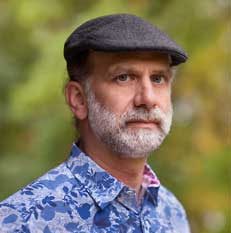KINGSTON, R.I. –November 3, 2014 –From a Pulitzer-prize winning journalist who stops using Google to protect her privacy to one of the world’s top online security experts, the University of Rhode Island’s 2014 Honors Colloquium will wrap with a bang.
There are only four, free public lectures remaining in the “Cybersecurity & Privacy” colloquium.
“We have had great responses to our lectures so far this fall, and we know audiences have been captivated by the fascinating and sometimes scary issues covered by our speakers,” said Ed Lamagna, University of Rhode Island professor of computer science, one of four coordinators for the University’s 2014 Honors Colloquium. “I invite members of our University community and those from the wider Rhode Island community to take part in these last four presentations, which address critical national security issues and personal privacy and security concerns.”
 While each lecture is important in its own right, the colloquium’s presenting sponsor, Cox Business, is giving one lucky audience member a chance to win an iPad Mini. All you have to do is attend the lectures and obtain a raffle ticket when you enter.
While each lecture is important in its own right, the colloquium’s presenting sponsor, Cox Business, is giving one lucky audience member a chance to win an iPad Mini. All you have to do is attend the lectures and obtain a raffle ticket when you enter.
All lectures are held in Edwards Hall at 7:30 p.m. and are free and open to the public. But for those who have attended the previous lectures on Tuesday nights, they are reminded that the next two are on Wednesday nights. The final two will be held on Tuesday nights.
Click here for a full schedule of Cybersecurity and Privacy speakers.
Those unable to attend the lecture can watch it live online at URI Live! 
The following is a list of the remaining speakers and background information:
• Wednesday, Nov. 5, Gary Warner, director of research in computer forensics at the University of Alabama at Birmingham, and co-founder and chief technologist of Malcovery Security, “Malware Threat Intelligence.”
His work focuses on developing investigative tools and techniques for analyzing digital evidence in the areas of spam, phishing, and malware. Warner supervised the creation of the UAB PhishIntel system, used by more than 300 law enforcement and financial crime investigators, and the UAB Spam Data Mine, which analyzes nearly a million spam messages every day for early threat detection. He has received awards for his contributions to fighting digital crime from Microsoft, the FBI, the National Cyber Forensics and Training Alliance, BankInfo Security, and the Messaging Malware Mobile Anti-Abuse Working Group.
• Wednesday, Nov. 12, Julie Brill, Federal Trade Commissioner, “Big Data, Data Brokers, and the Business of Tracking.” She has received several national awards for her work protecting consumers. At the Federal Trade Commission, Brill has been a staunch advocate of defending consumer privacy, especially with regard to online and mobile technologies. She supports the creation and implementation of ways to provide consumers with better information and control over the collection and use of their personal online information.
Before becoming a commissioner, Brill served as senior deputy attorney general and chief of consumer protection and antitrust in North Carolina (2009-2010), and as assistant attorney general for consumer protection and antitrust for Vermont (1988-2009). She earned her law degree from New York University, and has taught at Columbia’s School of Law.
• Tuesday, Nov. 18, Julia Angwin, award-winning investigative journalist for the independent news organization ProPublica, and author of Dragnet Nation,”Is Privacy Becoming a Luxury Good?”
From 2000 to 2013, she was a staff reporter for The Wall Street Journal, where she was on a team of reporters that won a Pulitzer Prize for coverage of corporate corruption. At the Journal, she also led a team covering online privacy that was a finalist for a 2012 Pulitzer.
In Dragnet Nation, Angwin presents an unsettling look at how the government, private companies, and even criminals use technology to indiscriminately sweep up vast amounts of our personal data. She argues that the greatest long-term danger is that we start to internalize the surveillance and censor our words and thoughts, losing our freedom and individuality in the process. Appalled at this prospect, Angwin conducted a series of experiments to try to protect herself, ranging from quitting Google to carrying a ‘burner’ phone, showing how difficult it is for the average citizen to escape the reach of the dragnets.
 • Tuesday, Dec. 2, Bruce Schneier, an internationally renowned expert on cybersecurity, has been dubbed a “security guru” by The Economist. His lecture topic is “Surveillance and Power.” He has published 12 books on the subjects of computer security and cryptography. His monthly newsletter Crypto-Gram and his influential blog Schneier on Security are read by more than 250,000 people. Schneier’s frequent postings range from short quips to articles detailing serious security issues.
• Tuesday, Dec. 2, Bruce Schneier, an internationally renowned expert on cybersecurity, has been dubbed a “security guru” by The Economist. His lecture topic is “Surveillance and Power.” He has published 12 books on the subjects of computer security and cryptography. His monthly newsletter Crypto-Gram and his influential blog Schneier on Security are read by more than 250,000 people. Schneier’s frequent postings range from short quips to articles detailing serious security issues.
Schneier has testified before Congress and served on several government committees. He is a frequent guest on radio and television, and is regularly quoted in the press.
With little or no oversight or regulation, our lives are being recorded to an unprecedented degree, Schneier says. Surveillance is the business model of the Internet, and data is being collected, saved, and correlated for personalized marketing and control. Governments around the world are also collecting and saving this data for law enforcement and control. Schneier says we need to think not only of the benefits of a surveillance-driven society, but also the harms. Society should also design policies that limit corporate and government intrusions into privacy, while at the same time reimagining our society in ways that can reap the benefits of our collective surveillance data.
In addition to Cox Business the colloquium is sponsored by the URI Honors Program, URI Office of the President; URI Office of the Provost; The Mark and Donna Ross Honors Colloquium Humanities Endowment; The Thomas Silvia and Shannon Chandley Honors Colloquium Endowment; URI College of Human Science and Services; URI Talent Development; URI Multicultural Center; URI College of Arts & Sciences; URI Harrington School of Communications and Media; URI John Hazen White, Sr. Center for Ethics and Public Service; URI College of Pharmacy; URI College of Engineering; URI College of the Environment and Life Sciences; URI College of Nursing; URI College of Business Administration; URI Division of Student Affairs; URI Department of Communications and Marketing; URI Department of Publications and Creative Services; URI ITS Instructional Technology and Media Services.
Julia Angwin, (photo by Deborah Kogan)
Bruce Schneier (photo by Geoffrey Stone)

